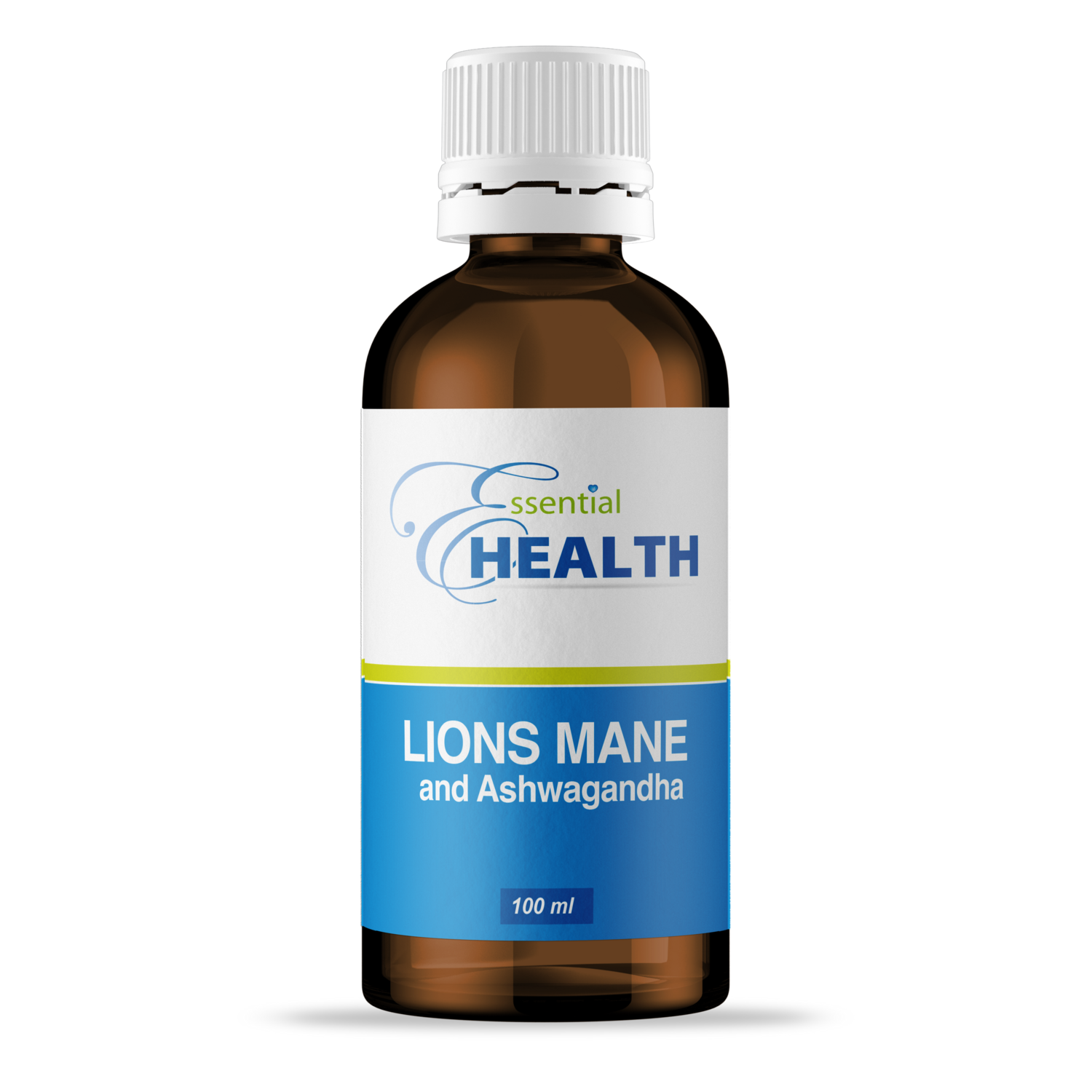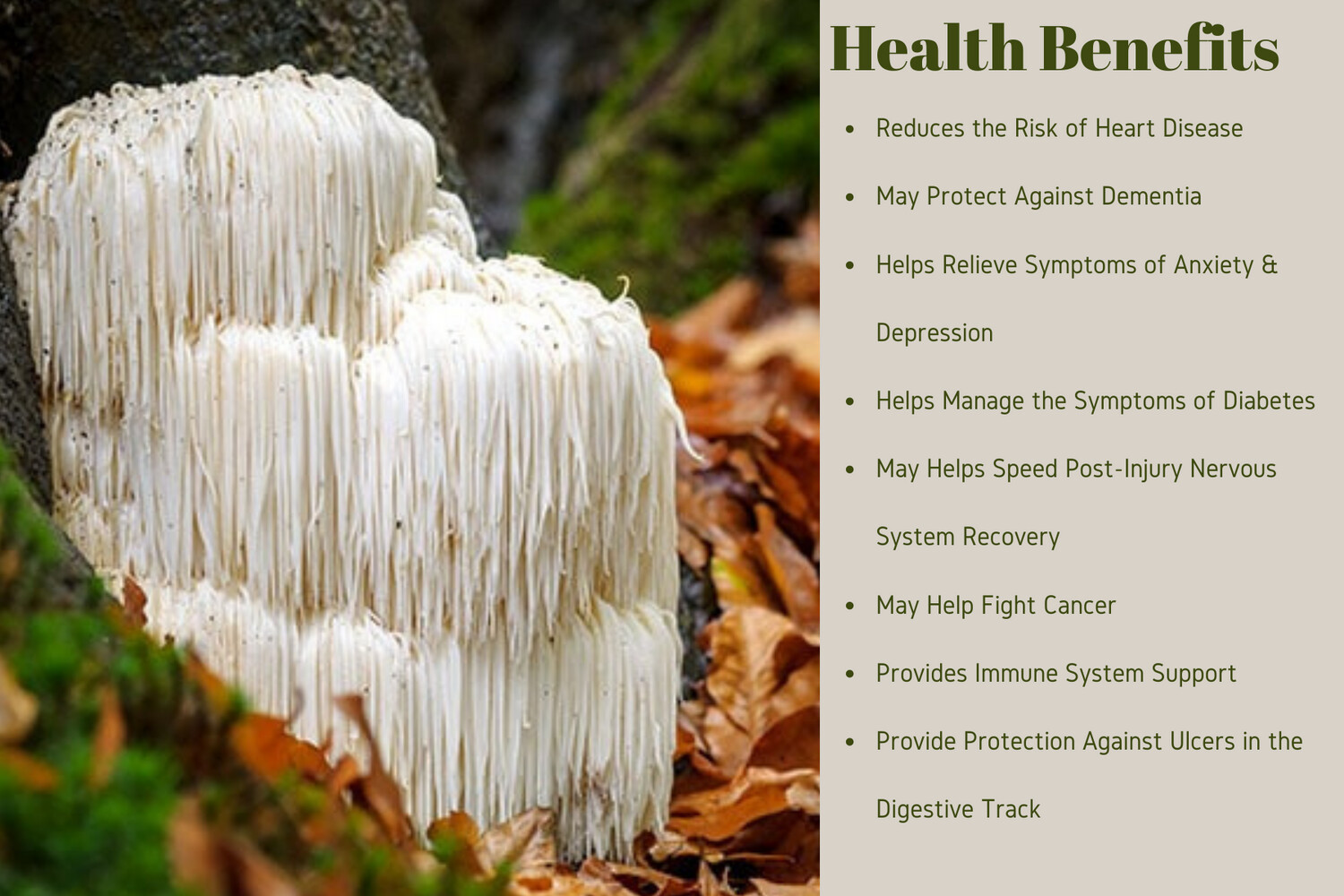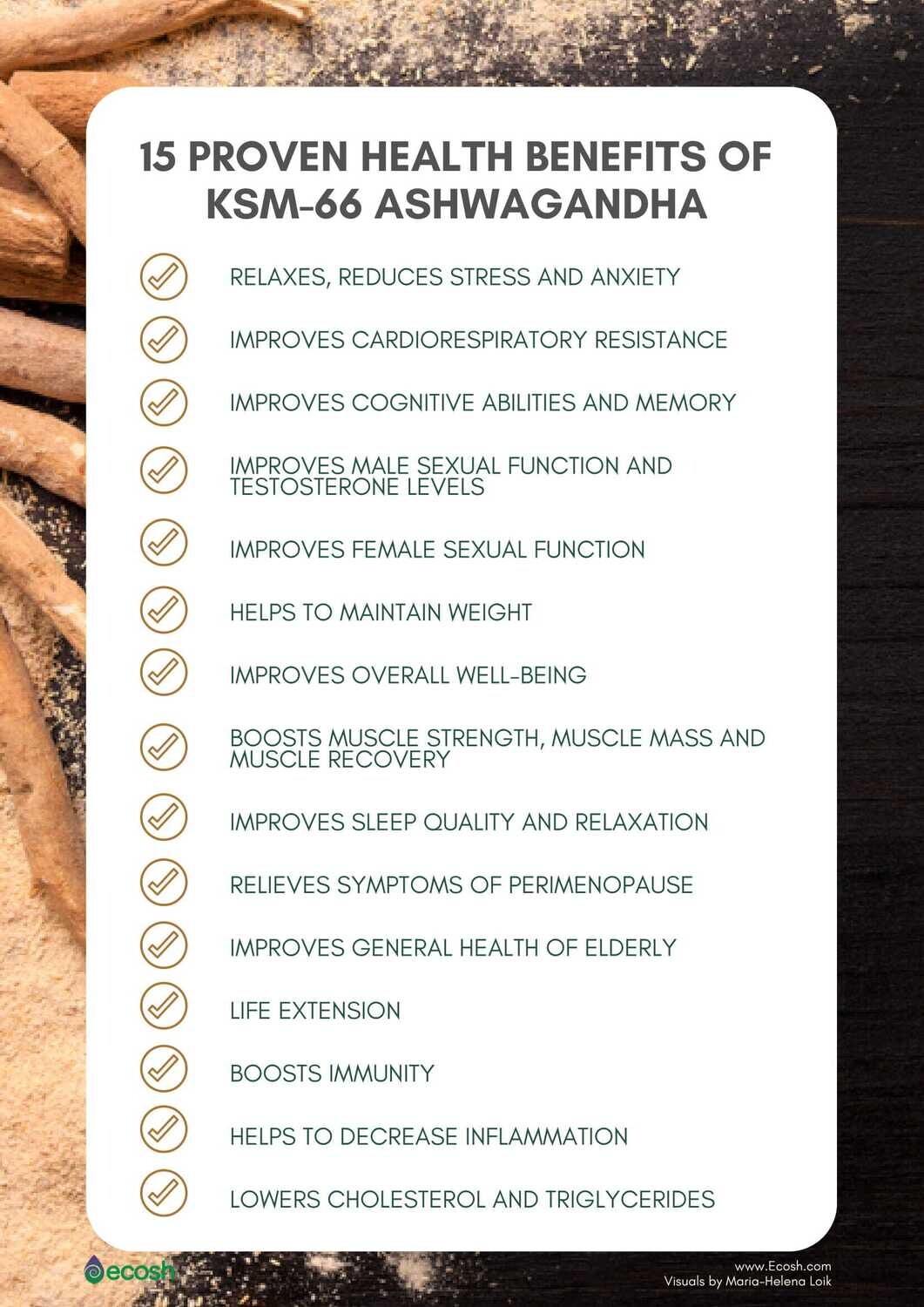FREE SHIPPING ON ORDERS OVER R500
EH Lions Mane and Ashwagandha 100ml
Protects Against Dementia
Lion’s mane mushroom provides many health benefits, but there are two plant compounds (hericenones and erinacines) in particular that are neuroprotective. Experts say these plant compounds found in lion's mane can generate new brain cells and protect against neurodegeneration associated with Alzheimer’s and Parkinson’s diseases.1 More research involving humans is necessary to fully determine the potential of lion's mane for neurodegenerative diseases.
Relieves Symptoms of Depression
Experts have suggested lion’s mane mushroom nutrients could serve as a potential alternative treatment for people experiencing depression. One literature review of studies shows many of the studies regarding the use of lion’s mane for depression are conducted on mice, which makes comparison with human mental health challenging.
The same review says clinical studies on humans are limited and small in sample size and have focused on lion's mane's potential for helping with depression symptoms related to menopause. In one case, depression symptoms including sleep issues in people with menopause were reduced after taking lion’s mane 80% mycelium extract and 20% fruiting body extract daily for eight weeks.3 However, even in human clinical trials, reviewers say the results are limited by a lack of control groups or rigorous study design.
Quickens Nerve Cell Recovery
Lion's mane is said to have regenerative capabilities, meaning its nutrients can help promote faster nerve cell recovery after injury. Experts say lion's mane is actually one of the few medicinal mushrooms out of some 2,000 different types known for its impact on nerve cell growth and health.
However, like much of lion's mane research, the information available on the mushroom's health effects is based on animal studies.
Lion's mane has traditionally treated digestive diseases for thousands of years. In Chinese traditional medicine, it is taken specifically for gastrointestinal issues.
Stomach ulcers can occur due to an overgrowth of a certain type of bacteria known as H. pylori. Stomach ulcers can also result from the long-term use of nonsteroidal anti-inflammatory drugs (NSAIDs), which damages the stomach's mucous layer.
A 2019 study of mice suggests lion's mane extract can fight ulcers after three weeks of use.
Reduces Inflammation
Across studies, lion's mane consistently shows the potential to reduce inflammation that contributes to or results from chronic disease. One study demonstrates the anti-inflammatory effects of lion's mane on mice with the digestive condition known as ulcerative colitis. Another study of mice suggests the anti-inflammatory effects of lion's mane extract are significant enough to combat liver inflammation from excessive alcohol consumption.
Lion's mane supports the immune system by promoting better gut health. According to animal studies, it works by stimulating the intestinal immune system and regulating gut bacteria. A healthy intestine fights bacteria and other pathogens that may enter through the nose or mouth and cause infection. The other plant compounds in lion's mane, including a range of antioxidants, also promote a healthy immune system.
- Regulates blood sugar
- Reduces high blood pressure
- Promotes healthy energy levels and combats fatigue
- Helps to prevent excess blood lipid accumulation
- Protects heart health
- Slows biological aging
- Protects liver health
- Protects kidney health




